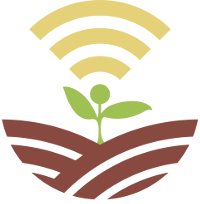Duration: 26 months, from October 2018 to March 2021
AgriCS Project Official web page: http://www.ersa.fvg.it/cms/aziende/progetti/AgriCS/AgriCS-PSR-2014-2020-Regione-Autonoma-Friuli-Venezia-Giulia.html
 The challenge
The challenge
ERSA, the Regional Agency for Rural Development of Friuli Venezia Giulia, has among its tasks the organization and management of technical services for the development of regional agriculture, support for professional training, information and demonstration actions. To effectively fulfill these tasks towards regional agricultural producers, the Agency needs internal innovation, updated IT tools and in step with the times that allow ERSA to provide value-added services to producers. The future of agriculture is to use the environmental data made available by new technologies (Big-Data and IoT) to obtain a phytosanitary defense and an integrated and smart agronomic management that acts with sustainability respecting the needs of all the territorial actors: productivity of companies, conservation of the territory, health of the environment and citizens. For an actor such as ERSA it is strategic to have software simulators (DSS) capable of reliably predicting the phytopathology and agronomic management scenarios on the various regional micro-climates with the aim of using these forecasting models as a training tool and decision support for agricultural businesses.
The Goal
The goal is to design and develop forward-looking software to support DSS decisions that are optimized and trainable, year after year, to the different micro-climates, to the different cultivated varieties and to the various other factors characterizing regional agriculture. In particular, in this project, the goal is to create the following forecast models (agronomic and phytosanitary) designed ad hoc on regional scenarios:
- Irrigation model at company level
- NPK fertilization of crops at farm level
- Farm management (production factors and sustainability)
- Downy mildew of the vine (Plasmopara viticola)
- Apple scab (Venturia inaequalis)
- Corn rootworm (Diabrotica virgifera)
- Corn borer(Ostrinia nubilalis)
- Moth and Moth of the vine (Eupoecilia ambiguella)
- Navicular (Scaphoideus titanus)
- Codling moth (Cydia pomonella)
How does it work?
The working model includes the following steps, for each model to be developed.
-
- Model design and mathematical adaptation: an agronomic working group reviews and catalogs the main agronomic studies, research projects, scientific publications and field tests performed internationally in relation to the problem to be solved and the specific forecast model to be to develop. Vine at this point designed a new theoretical-agronomic model that brings together the different strengths of different approaches / models that emerged from the previously performed international cataloging study.
- Mathematical adaptation: the new theoretical-agronomic model is adapted both from the agronomic point of view (to respond to the needs of adaptation and calibration of the general model to the target territorial context with its specificities) and from the mathematical point of view (to allow the compatibility of the logic of the model with the software algorithms to be developed).
- Software development (SW): the sub-optimal mathematical model generated with actions 1 and 2 is transformed into a DSS software by precisely identifying the input parameters necessary for the model and the outputs desired by the client.
- SW model test: the SW model developed is tested on agro-weather data and historical field data relating to the territory of interest both to validate the correspondence of the SW model, the mathematical model and to measure the predictive capabilities of the model on real data.
-
- SW model test: the SW model developed is tested on agro-weather data and historical field data relating to the territory of interest both to validate the correspondence of the SW model, the mathematical model and to measure the predictive capabilities of the model on real data.
Outputs
ERSA will have trainable software simulators (DSS) capable of reliably predicting the phytopathology and agronomic management scenarios on the various regional micro-climates. DSS software will be used as a training and decision support tool for agricultural businesses and other regional stakeholders (as well as a research and development tool for future new agronomic trials). These activities support the real implementation of an integrated phytosanitary defense and intelligent agronomic management that acts with sustainability and punctuality (intervening only if, where, and when necessary) respecting the environment and the needs of all the territorial actors.


